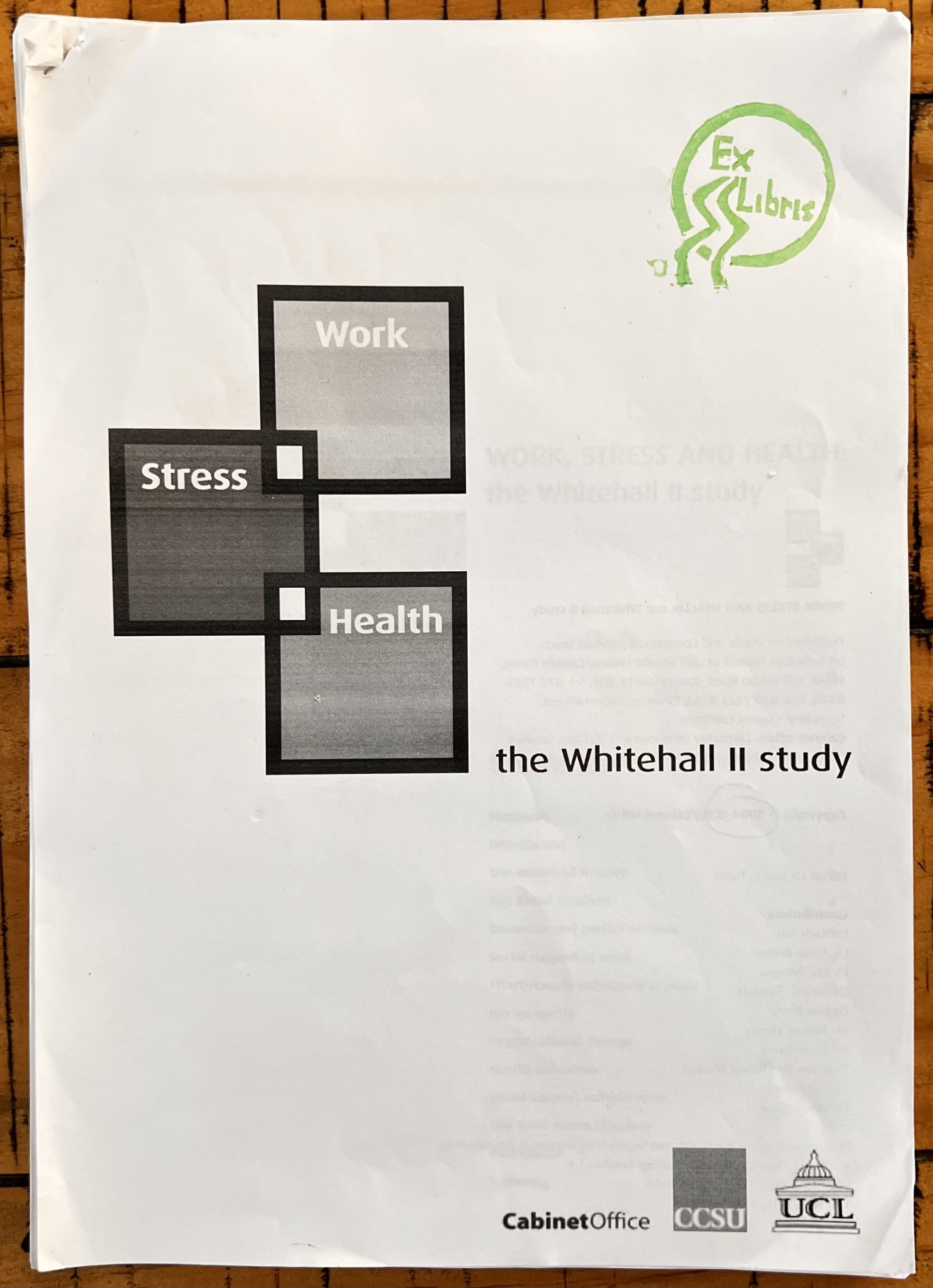Men’s Health Week 2024
Men’s health. It matters. Yet the influencing factors on every individual’s health are complex and multi-faceted. They include environmental influences, genetic influences, and even socio-economic influences.
This week (Monday, 10 June, 2024), marks the start of International Men’s Health Week. It is, as the Australian Men’s Health Forum (AMHF) says,
“...an opportunity to highlight the importance of men’s health, and to promote and support the health and wellbeing of men and boys in our communities”
Mens health, and men’s issues have long held a special place in my heart. I had many wholesome and good male role models in my youth, both in family, as well as in school, and in community. And while my life was not without hardship, I know I was lucky.
As a young man, I had the opportunity to meet one of my heroes, a poet, facilitator, and author of Iron John: A book about men, Mr Robert Bly.
At the time of our meeting, I was working for a company, Wilderness Inquiry, that specialised in social integration. I was only a junior wilderness guide on that trip, however found out that early on in my employment there, that I would be sharing a canoe for a week with Robert Bly- canoeing through the Ten Thousand Islands in the Gulf of Mexico off the coast of Florida.
Of course, I brought my well worn copy of Iron John, which he signed for me, with one of his drawings, of he and I, in a canoe:
From that week, I tried to absorb as much as I could from Robert on the psyche of man, and the mythological lens through which to view the changing world of masculinity, fatherhood, and healthy male role models. It was a foundational time in my development as a man… an insightful path that I am still on!
When one looks at health - it is important to realise that health is so much more than just an absence of pathogens in one’s system. It is more than ailments, and influenced by so many varying factors - some of which have far more impact than we realise. This is not to say that the ailments and pathogens and accidents don’t matter. They do. Ninety three percent of work-related deaths are male.
Yet the conditions in which we live also have a deep impact on our body’s ability to thrive. Three out of every four deaths by suicide happen to males. And, as the National Men’s Health Strategy says:
“Males experience a greater share of the total fatal and non-fatal burden of disease, dying at younger ages than females and more often from preventable causes.”
We know that there are multiple reasons for this - and yet, we also know that inequalities in health cannot be divorced from inequalities in society.
These inequalities experienced by individuals can take the form of societal expectations on a demographic group, or it can relate to elements such as unemployment or job insecurity, working life conditions, education, amongst many other things.
The field of research that looks into this is called the ‘social determinants of health’. And these social determinants are critical to understand when looking at the health of any individual demographic group.
I first encountered this research when I was working at the Department of Health and Ageing in 2009, reading Sir Michael Marmott’s work in the WhiteHall Study for my work on gender and reproductive health policies.
What startled me when I read this research, was that in a longitudinal study on the UK’s Civil Service, they found that low levels of one’s ability to have agency in their lives…( to control how the demands of their work are going to be met), have a larger impact than the negative impacts that smoking has on one’s health.
Think on that…
If you think of all the poor decisions you can make for your health, clinically, one of the worst is to be a smoker. There are no end of disastrous consequences that are linked to smoking. Things like cardio-vascular disease, lung cancer, emphysema, diabetes. The list goes on. Yet, when someone is in a situation where they have no sense of self-agency at work, then smoking takes a backseat compared to this, which is the larger impact on their health.
The work, summarised in the booklet above, was commented on, in a joint statement by Sir Andrew Turnbull KCB CVO (then Head of the UK’s Home Civil Service) and Mr Mark Serwotka, (then Chair of the UK’s Council of Civil Service Unions), as being:
“...required reading for ...HR staff, line managers, trade union reps, and indeed anyone with a positive interest in the wellbeing of civil servants and the Civil Service...”
But it is not just the health of public / civil servants that I am writing about today. Because I am a long time, and passionate, public servant, I know that there are so many good things that the public service does for the nation, that doesn’t really get attention. And I understand how citizens can easily forget that the services and programs that keep our society functioning are developed and run by people whose service benefits the rest of us.
Things like the funding of research into issues that impact our nation, and working with the community to develop and implement policy solutions that can help to address these issues, and information for the community to use to be informed about relevant issues.
One of these resources is the Department of Health and Aged Care’s National Men’s Health Strategy 2020-2030 which works to guide where funding and attention are going to be spent in male health.
In addition to outlining priority funding areas, it also shares information and links with a number of other relevant policies and strategies, as well as provides information that can help reduce the incidence of preventable injuries and conditions, and more importantly - helps those who want to help, understand where their actions can best serve the cause.
And, this work was heavily influential in the development of my thinking when I had the privilege of designing and facilitating the community consultation process for Australia’s first National Male Health Policy (back almost 15 years ago!).
The first National Male Health Policy in Australia
The consultation for the Male Health Policy ensured that we were able to hear from men across the many spectrums of diversity, and across the issues that affect them.
When you take the time to listen (to anyone who holds an often unspoken pain in their story), you can be humbled and find yourself connecting with them.
You can learn an incredible amount from the lived experience, and the very real issues that they face which contribute to their health.
Weeks like International Men’s Health Week, are designed to raise awareness of, and target energies into policy issues that can help our nation.
If you care about any men or boys in your life, fathers, sons, grandfathers, nephew’s or brothers, I strongly encourage you to take notice and listen to what they have to say about their health. Learn to hear what they don’t say too. Try to connect with them, and try to understand their story and how it impacts on their identity… and through this, on their health.
We are, each of us, walking our own path, with our own insights. Take the time to discover how the insights of others can help you to on your path.




